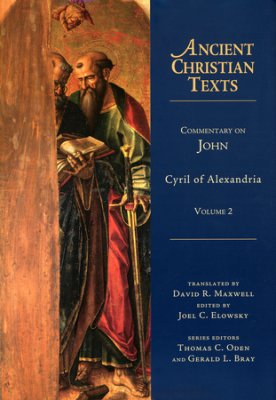Tips for Reading Early Christian Exegesis
 IVP Academic, over the past number of years, is producing accessible and invaluable resources for the modern church. Among these sources are collected in the Ancient Christian Texts series.
In 2013, David Maxwell translated Cyril of Alexandria's Commentary on John. The final section of his introduction is "Advice for Reading." Though intended to be advice for reading Cyril's work on John, I find these comments helpful when reading patristic exegetical and commentary literature in general.
IVP Academic, over the past number of years, is producing accessible and invaluable resources for the modern church. Among these sources are collected in the Ancient Christian Texts series.
In 2013, David Maxwell translated Cyril of Alexandria's Commentary on John. The final section of his introduction is "Advice for Reading." Though intended to be advice for reading Cyril's work on John, I find these comments helpful when reading patristic exegetical and commentary literature in general.
- Do not skip Cyril's citation of Scripture in an attempt to "get tot he point." Cyril's handling of Scripture is the point.
- Ask what connections Cyril is making between different texts and on what basis he is making those connections.
- Notice what passages Cyril finds difficult or challenging and in need of explanation.
- Try to reconstruct or imagine what the Arians might say about a particular set in order to understand why Cyril makes the points he does.
- Pay attention when Cyril lounges into a summary of the entire story of salvation. He has multiple ways of telling it.
- Cyril's discussions are often long, but their structure is not overly elaborate. Cyril seems to be writing down (or perhaps dictating) point as they come to his mind on a particular passage or topic. He does not seem to be following a master outline laid out in advance.
David R. Maxwell, "Translators Introduction," in Commentary on John by Cyril of Alexandria vol 1, trans. David R. Maxwell, Ancient Christian Texts (Downers Grove, IL: IVP Academic, 2013), xxiv.




